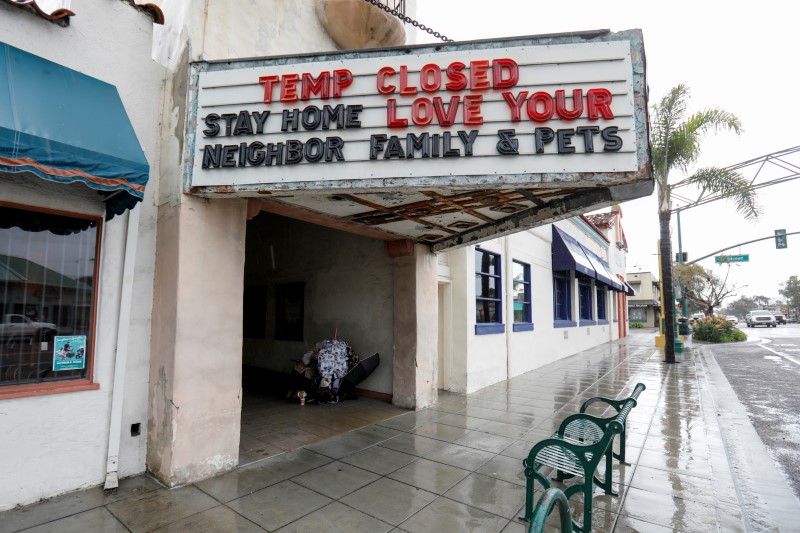By Dan Whitcomb
LOS ANGELES (Reuters) - Modeling has shown that more than 60,000 homeless people could become ill with the coronavirus in California over the next eight weeks, badly straining the healthcare system, the state governor said on Wednesday.
Hospitalization rates for those infected with the flu-like disease was about 20%, creating a requirement for additional hospital beds that could quickly overwhelm hospitals if the modeled predictions come true, Governor Gavin Newsom said.
"Over the next eight-week period, we have modeled that of the 108,000 unsheltered Californians that are out on the streets, if you had an attack rate of about 56%, you're looking at 60-plus thousand individuals that may have COVID-19," Newsom, a Democrat, said in a Facebook (NASDAQ:FB) address to the state.
"That creates a deep point of anxiety for the existing population but moreover for our healthcare delivery system, our capacity to move people in and out of the shelters safely without contacting other people and putting them at risk as well."
California, the nation's most populous state, has also been among the hardest hit by the coronavirus outbreak, with 598 confirmed cases as of Wednesday, a 21% increase over the day before. At least 17 fatalities have been reported in California.
The governor said he had issued an executive order authorizing the distribution of an $100 million to cities and counties across California to blunt the impact of the respiratory illness on the homeless, and had acquired 1,300 trailers to use as temporary housing.
Another executive order directed that $50 million be used to convert motels and hotels into shelters where homeless people could be isolated if they caught the virus.
Newsom said he had spoken to the Trump administration about anchoring a U.S. Navy medical ship, the Mercy, off the Californian coast to house additional patients and to set up field hospitals in the state.
Los Angeles Mayor Eric Garcetti said the state's largest city was making a new push to identify homeless people considered most vulnerable to the virus, including the elderly and those with pre-existing medical conditions.
The Democratic mayor said that up to 6,000 of those potential coronavirus victims would be given beds in city recreational centers.

Patients suspected of carrying the virus would be isolated in emergency trailers, a move paid for by tapping into state funds made available by the governor.